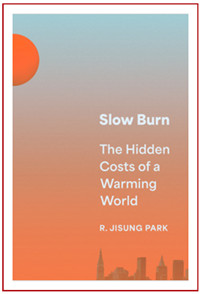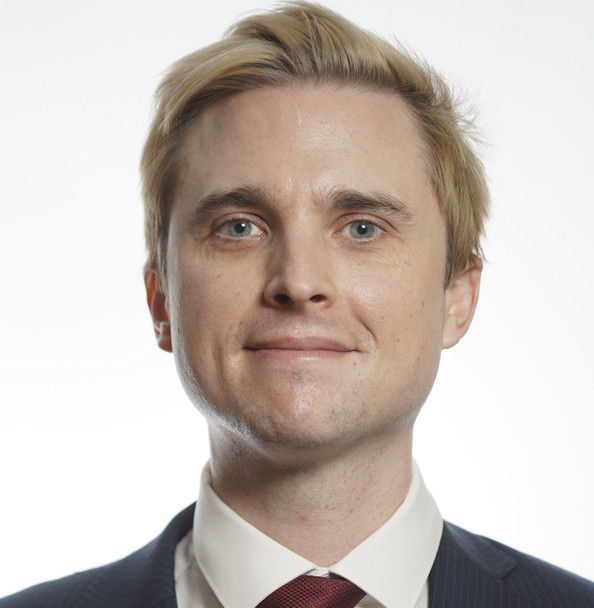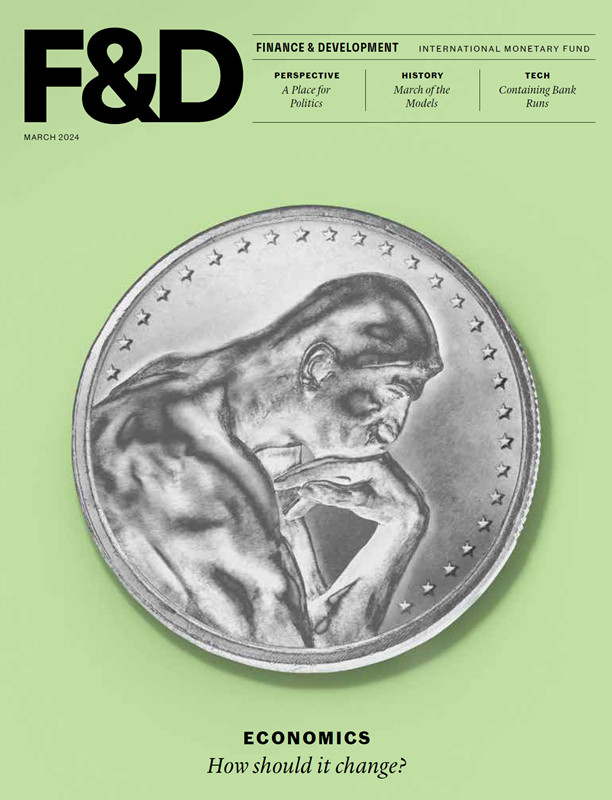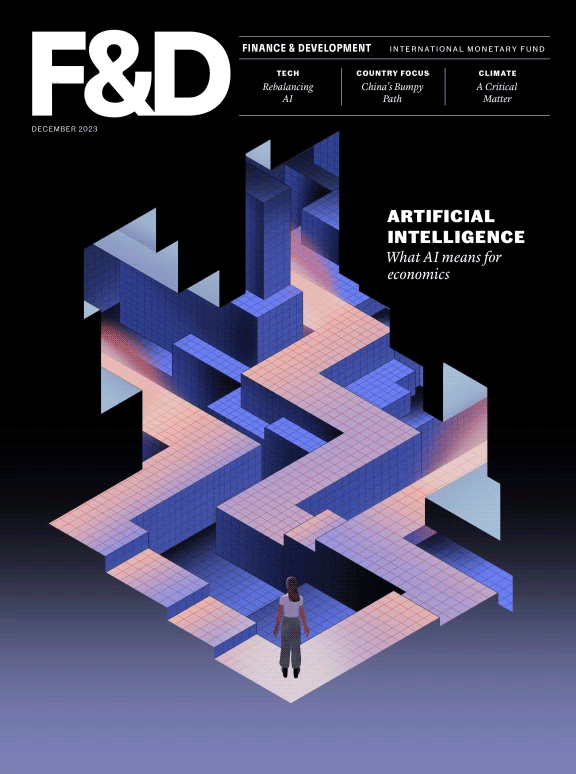SLOW BURN
THE HIDDEN COSTS OF A WARMING WORLD
R. Jisung Park
Princeton University Press, Princeton, NJ, 2024, 336 pp., $29.95

As the world warms, anxiety over the effects continues to rise. A survey conducted by the United Nations found two-thirds of the global population believe that climate change is a global emergency. Fears abound on the risks of triggering tipping points in the climate system, such as the melting of ice sheets or the release of underground methane. But alongside future risks of climate catastrophe, there are also slow-burning effects already being felt around the globe. In Slow Burn: The Hidden Costs of a Warming World, environmental and labor economist R. Jisung Park documents these effects, from the expected, like worsening inequality, to the unexpected, such as declining productivity and economic growth.
The link between temperatures and economic growth is well established in development economics literature. The observation that richer nations tend to be at higher latitudes and poorer nations closer to the equator has led to many studies examining whether this is causal or coincidental. Park summarizes the literature and concludes that heat can significantly hinder human performance in areas ranging from standardized exams to professional tennis to manufacturing. “Hotter temperatures,” he argues, “may already be affecting companies’ bottom lines,” and climate change has the potential to “significantly alter the economic playing field” by creating winners (those able to adapt) and losers (those who cannot).
On inequality, it has long been noted that climate change has the potential to increase global inequality and that, perversely, the poorest countries—which contributed the least to the problem—are more vulnerable to its effects. This also appears to be the case within all countries, with the poor simultaneously more concentrated in hotter regions and more vulnerable to climate-related shocks such as heat stress than the rich. These effects are uncertain, with significant variation even within neighborhoods, companies, and families.
Park documents several other channels through which the slow-burning effects of climate change are already affecting human welfare. Increasing temperatures causally raise workplace injury risk, mortality, and crime rates, for example. The ripple effects of these impacts are uncertain, but without significant adaptations they are likely to get worse as the planet continues to warm.
However, Park ends on an optimistic note: it’s not too late, he says, to limit global warming while becoming much more resilient to the slow-burning effects through adaptation. Further, he argues, focus on the slow-burning perspective can help avoid the fatalism the doomsday climate narrative invokes and allow us instead to “view climate change with sober resolve, compassion for those most vulnerable, and a sense of active hope.”
Opinions expressed in articles and other materials are those of the authors; they do not necessarily reflect IMF policy.









